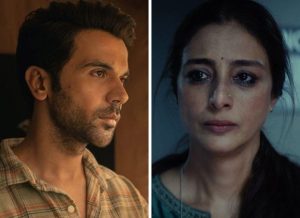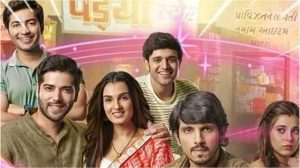Movie Review: Manto

Is flexibility of articulation supreme? What establishes vulgarity and foulness? These are the issues our present-day Indian culture is pondering particularly when artistes once in a while attempt to test existing known limits. This is disastrous, considering our history is packed with some extremely dynamic craftsmen who set the benchmark for progressiveness but, our general public pushed ahead. Saadat Hasan Manto was one such author and his works keep on fascinating perusers even today. Nandita Das, following quite a while of battle, is at last prepared with her film on this identity, titled MANTO. So does MANTO figure out how to mix and move watchers simply like the author’s works? Or on the other hand does it bomb in its undertaking? We should examine.
Film Review Manto
MANTO tosses light on the four unequivocal long stretches of the life of Saadat Hasan Manto (Nawazuddin Siddiqui), an insubordinate author. The story starts in 1946 in Bombay, India. Manto is a non-honing Muslim however has his misgivings when the mutual uproars break out when the nation is at the cusp of opportunity. He is hitched to Safia (Rasika Dugal) and he wins his living by composing for films. His dear companions are individual liberal essayist Ismat Chugtai (Rajshri Deshpande) and film on-screen character Shyam Chadda (Tahir Raj Bhasin). In the mean time, India picks up Independence on August 15, 1947. Saifa goes to Lahore to go to her sister’s wedding. Manto meets Shyam’s family who have kept running from Rawalpindi to India and have lost a relative while getting away. Shyam, in an attack of fierceness, communicates his contempt for Muslims and even reveals to Manto that he could have murdered him as well. An upset Manto chooses to leave India for all time and settle in Lahore. There, he is slapped with indecency accusations over his story ‘Thanda Gosht’. What occurs next structures whatever is left of the film.
Nandita Das’ story is fascinating as it doesn’t toss light on as long as Manto can remember yet just on the four years. It likewise makes a decent remark on the possibility of opportunity of articulation and how society keeps on making issues for the individuals who are demonstrating the mirror. Nandita Das’ screenplay has its minutes with couple of scenes being especially composed. In any case, at a considerable measure of spots, the film neglects to have the coveted effect which is grievous since the film has a great deal of potential. Nandita Das’ exchanges are sharp and acidic. Manto’s unique statements are additionally utilized and it includes a genuine touch. Be that as it may, a considerable measure of discoursed are in virtuous Urdu and English captions fortunately have been given.
Nandita’s heading is unhurried and blustery. The subject helps one to remember Ketan Mehta’s RANG RASIYA [2014], which likewise discussed a craftsman being hauled to court over a silly issue, and the acclaimed Spanish film NERUDA [2016], in view of the Chilean writer Pablo Neruda. However, Nandita with her execution guarantees that watchers don’t begin drawing parallels with these two movies. Exceptional say ought to be made of two angles – one, she doesn’t get overpowered with the period setup and doesn’t attempt to concentrate more on the sets and props. She rather maintains her emphasis on her hero. Besides, she handles couple of delicate variables with panache, one of them being Manto’s fellowship with Ismat. The way in which their unadulterated kinship is delineated with Manto’s better half additionally recognizing it makes for a pleasant watch. Be that as it may, then again, she makes the film excessively dry, particularly in the second half. This vigorously damages the effect.
MANTO is only 112 minutes in length yet could have been more tightly, as Nandita Das’ past directorial adventure FIRAAQ [2009]. The characters are entrenched and the way in which Manto’s accounts are mixed with the story easily is admirable. The main half is shorter and has some critical arrangements – Manto getting outraged with the maker (Rishi Kapoor), Manto and Safia endeavoring to envision the back story of a lady they find in a recreation center and Manto and Safia seeing the Independence Day festivities. The best succession of the primary half anyway must be Manto and Shyam’s encounter in the neighborhood prepare. The second half is longer and this is the place the film slips. Manto’s battles could have been appeared in a superior way. Additionally, the film has some awesome characters however notwithstanding 2 or 3, the rest don’t get their due like the lascivious film maker (Rishi Kapoor), Shaad Amritsari (Shashank Arora), Jaddan bai (Ila Arun), Nargis (Feryna Wazheir), Tea Stall Man (Neeraj Kabi), Ansar Shabnam Dil (Vijay Varma), Abid Ali Abid (Javed Akhtar) and so forth. The peak is representative however looks somewhat unexpected. Therefore, MANTO will request just to the top of the line multiplex groups of onlookers.
Nawazuddin Siddiqui is the spirit of MANTO and prevails with regards to giving an amazingly, one more significant execution. The on-screen character revives the character and does equity as he depicts his different sides. A standout amongst the most underrated parts of his execution is the point at which he feels dreadful (see him in the scene with Ashok Kumar). Rasika Dugal has a vital part and has her influence easily. Tahir Raj Bhasin conveys a bravura execution. In the second a large portion of, his screen time is restricted and despite the fact that he does well, the happenings in the said grouping appear to be shallow. Rajshri Deshpande is astounding in an appearance and one wishes she had a more extended job. Rishi Kapoor is great as the shabby movie producer. Shashank Arora has an essential part yet no clarification is offered with respect to who precisely is he and how a bond is shaped among him and Manto. Ila Arun gets the opportunity to sparkle in the scene where she sings the tune. Neeraj Kabi is as constantly uncommon however once more, has barely anything to do. Vijay Varma, for the most part recognized as the foe in PINK, is good. Javed Akhtar is great, giving one a sensation that this has happened before of Naseeruddin Shah’s appearance in the Pakistani film KHUDA KAY LIYE [2007]. Inammulhaq (Hamid) and Chandan Roy Sanyal (Ahmed Nadeem Qasmi) are alright and don’t get much degree. Feryna Wazheir gets no discourse in spite of the fact that she very looks like it. The performing artist who played Ashok Kumar is somewhat ludicrous yet figures out how to get the subtleties right.
At that point there are performers who play the characters of Manto’s accounts. Out of these, Ranvir Shorey (Ishrat Singh) and Divya Dutta (Kulwant Kaur) get the most extreme degree and make a gigantic effect. This is trailed by Vinod Nagpal (Bishan Singh; Sikh man in Toba Tek Singh). Paresh Rawal (Pimp), Tillotama Shome (Prostitute), Gurdas Maan (Sirajuddin) and Purab Kohli (Kaifiyat) likewise do.
Sneha Khanwalkar’s music doesn’t get much extension. ‘Nagri’ gets enlisted as it’s had at an essential influence. ‘Bol Ke Lab Azaad Hain’ comes amid the end credits. The rap tune ‘Mantoiyat’ fortunately isn’t made a piece of the film. Zakir Hussain’s experience score is unpretentious and impactful. Kartik Vijay’s cinematography is flawless. Rita Ghosh’s creation plan, Sheetal Iqbal Sharma’s ensembles and Shrikant Desai’s hair and make-up are too great and assume a vital job in giving the film a reasonable, valid touch. Prana Studios’ VFX matches the worldwide benchmarks. All these meet up exceptionally well in reproducing the former period. A Sreekar Prasad’s altering is basic.
All in all, MANTO has its minutes and makes an essential remark which is important in the present occasions. Be that as it may, the second half is powerless and the film in general is excessively specialty. Consequently, it won’t speak to the standard gathering of people and this would influence its film industry execution.







